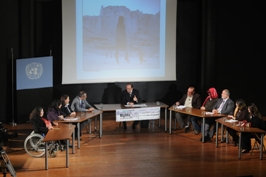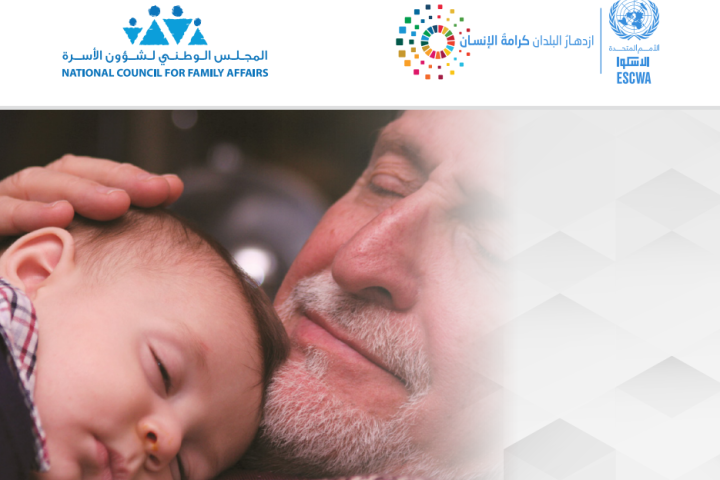The Office of the High Commissioner for Human Rights in the Middle East and the United Nations family in Lebanon organized a ceremony on 10 December to mark Human Rights Day 2009 in the presence of Lebanese MPs and senior officials, top UN officials, representatives from embassies and NGOs, human rights associations and the general public.
"Discrimination lies at the root of many of the world’s most pressing human rights problems. No country is immune from this scourge. Eliminating discrimination is a duty of the highest order," said Navi Pillay, United Nations High Commissioner for Human Rights in a video message projected at the ceremony.
Under the theme, "Embrace Diversity, End Discrimination," the ceremony went beyond traditional celebrations and engaged people suffering from discrimination who gave testimonies in panel discussions that were moderated by the Head of Al Jazeera's Beirut office Ghassan Ben Jeddo and broadcasted live as well on the same pan-Arab news channel.
The panel discussions featured debates on how to address the challenges of human rights and commit to the elimination of discrimination in our societies.
Fateh Azzam, Middle East Representative of the Office of the High Commissioner for Human Rights, gave an opening statement in which he expressed hope that participants in the ceremony will come out with a broader notion on discrimination and conduct self assessments on their performance in order to commit to ending discrimination.
UN Special Coordinator for Lebanon Michael Williams said Lebanon today is a country and a people trying to come to terms with a multitude of views, to cope with the nature of its diverse beliefs. It is not a perfect process. "And yet I feel a diverse community of people wants to move forward and avoid the mistakes of the past," he noted.
"I am comforted by the spirit of dialogue that has prevailed over the past few months. We now hope that such dialogue will become instrumental to achieving many of the reforms that all Lebanese, regardless of their different political views or confessional observations, have been asking for," he added.
Williams went on to say that Lebanon will take its seat at the Security Council as an elected member. It is a great honour and a great opportunity. But like all opportunities in life, it comes with greater scrutiny and responsibility. Lebanon has adopted many international treaties and conventions that are critical in protecting its great diversity. More can be done to ensure that all the provisions of all these important international instruments are fully implemented for the benefits of all.
For his part, the head of the Human Rights Parliamentary Committee Michel Moussa said that human rights are being seriously violated in the region, and that this is manifested by cluster bombs that Israel planted on Lebanese soil during the summer 2006 war, the Israeli war on Gaza, the situation in refugee camps and the ongoing Arab-Israeli conflict. "More democracy means more diversity, justice and equality," Moussa said.
Moussa also said that this year's human rights celebration coincided with the Copenhagen Climate Change Summit, and he called for preserving nature and putting an end to all sorts of environmental abuses.




